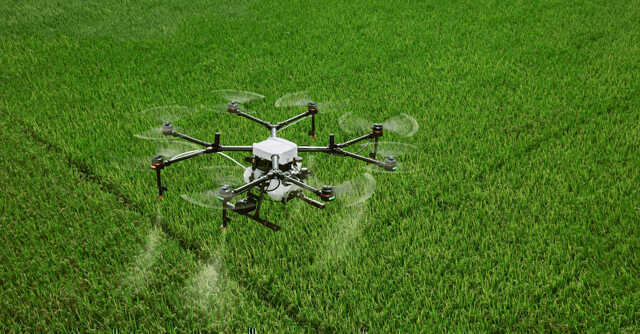
Syngenta India gets approval to use drones to spray fungicide


Switzerland-based agri-tech company, with its India head office in Pune, Maharashtra, Syngenta, said that it has got India government’s approval for spraying fungicide using drones to protect paddy crops. The company claims to be the first private entity to get such an approval for spraying agrochemicals, after submitting safety and bio efficacy data.
According to a statement issued by the company, the Central Insecticide Board that functions under the agriculture ministry has given its approval to Syngenta India to use drones to spray its fungicide Amistar Top on the paddy crop, which protects the crop against fungal infections like blast and sheath blight.
Another product Syngenta Ampligo, which is a mixture of two modes of active ingredients, has also been approved by the 438th Registration Committee, it added.

The approval was granted on the basis of the data generated from the state government notified agricultural universities and the Indian Council for Agricultural Research on crop safety and other relevant parameters as per Standard Operating Procedure.
“The government has also accorded ad-hoc but conditional approval for 477 registered pesticides that can be used in agriculture via Drone spray which includes insecticides, fungicides, and plant growth regulators, out of which around 40 formulations are of Syngenta,” the company said in the statement.
“We are evaluating the use of our solutions through drones in different crops like cotton, soybean, groundnut, hot pepper, red gram, corn, rice in Maharashtra,” Sunil Kurchania, head, crop protection development (research and development) Syngenta India.

In 2021, the agriculture ministry had released a comprehensive SOP (standard operating procedure) on drone application for pesticides for promoting the use of drones in agriculture sectors. The SOPs cover aspects like statutory provisions, flying permissions, area distance restrictions, weight classification, overcrowded areas restriction, drone registration, safety insurance, piloting certification, and weather conditions among other details.
